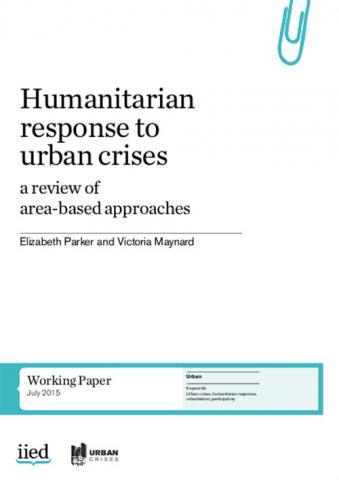Humanitarian response to urban crises: a review of area-based approaches


In recent years there has been increasing interest in area-based approaches among humanitarian actors responding to urban crises. Through analysis of case studies, as well as available policy literature, this paper proposes that, in an urban context, area-based approaches have three defining characteristics: they are geographically targeted, and adopt a multi-sectoral, participatory approach.
Area-based approaches are neither ‘good’ nor ‘bad’; their positive and negative effects depending entirely on the context in which they are conceived, their programme design, the manner of their delivery and the appropriateness of adopting such a strategy. Further research is required to better understand the implications of wide-scale adoption of area-based approaches by the humanitarian community.
IIED DFID Urban Crises Learning Fund, July 2015
